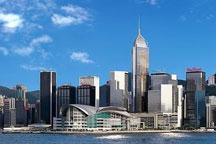Mainland, HK to promote economic ties
2009-06-25 14:13 BJTWATCH VIDEO
In 2003, the Chinese mainland and Hong Kong Special Administrative Region signed the Closer Economic Partnership Arrangement, also known as CEPA. The agreement has functioned as an important drive for Hong Kong's economy.
The Ministry of Commerce says it will continue to use CEPA to help consolidate Hong Kong's status as an international financial, trade and shipment center.
CEPA has given Hong Kong access to opened up 42 Mainland service industries, ranging from finance and accounting to tourism and logistics. During the past six years, Hong Kong's GDP has maintained an annual growth rate of over six percent. The region's unemployment rate has fallen by more than half.
Joyce Tam, Assistant Director-General of HK SAR Trade & Industry Department said "The signing of CEPA has improved public confidence in Hong Kong's economy. It also provided a platform for deepening cooperation with the Mainland."
By the end of April, the Mainland had imported more than 2 billion US dollars worth of Hong Kong goods at the zero tariff rate. To help the region tackle the financial crisis, China's central government has decided to implement a supplementary agreement to CEPA on October 1st.
One Hong Kong resident said "Hong Kong is doing well in all aspects. With the support of the central government, Hong Kong has been stable and prosperous."
The Ministry of Commerce says measures are being taken to consolidate Hong Kong's economic status. The central government will promote circulation of commodities, professionals and capital between the mainland and Hong Kong SAR.
Hong Kong has the advantage of being an independent tariff zone. The region is also highly internationalized.
The Mainland has rich natural resources, a vast market and integrated manufacturing industry.
Officials say combining these advantages will help businesses on both sides gain competitiveness in the international market.
Editor: Xiong Qu | Source: CCTV.com
 Mail
Mail Share
Share Print
Print
 Play VideoHK 12 years: Closer economic ties between HK and mainland
Play VideoHK 12 years: Closer economic ties between HK and mainland


 Video
Video









 2009 China Central Television. All Rights Reserved
2009 China Central Television. All Rights Reserved